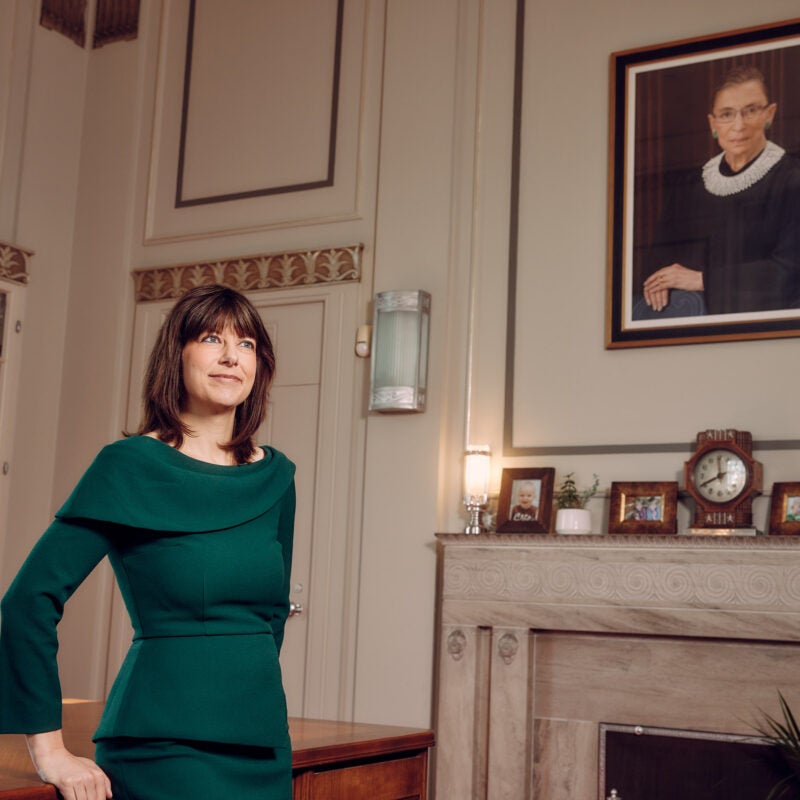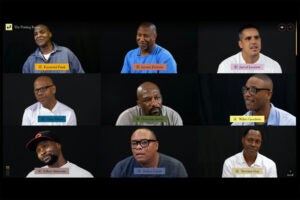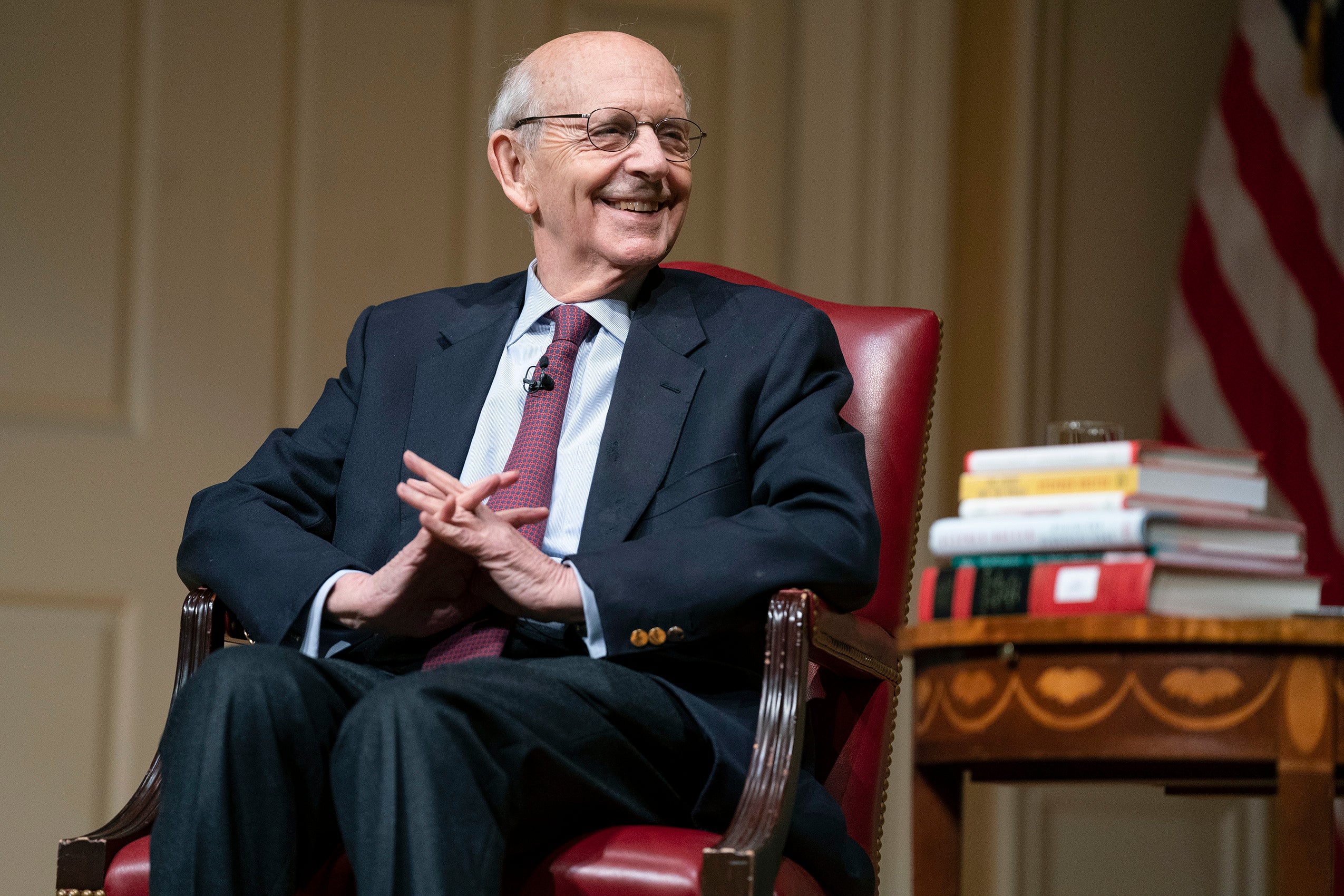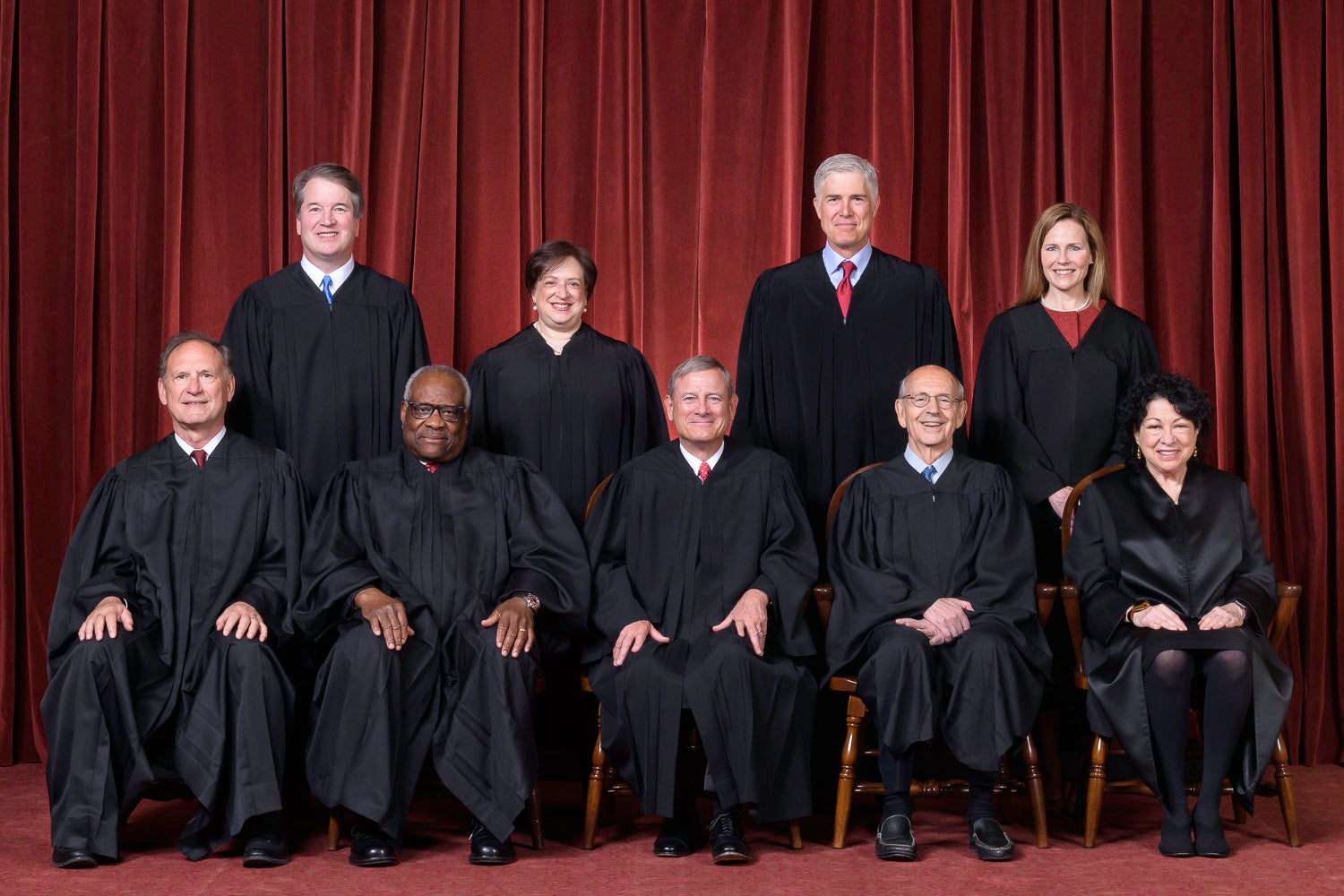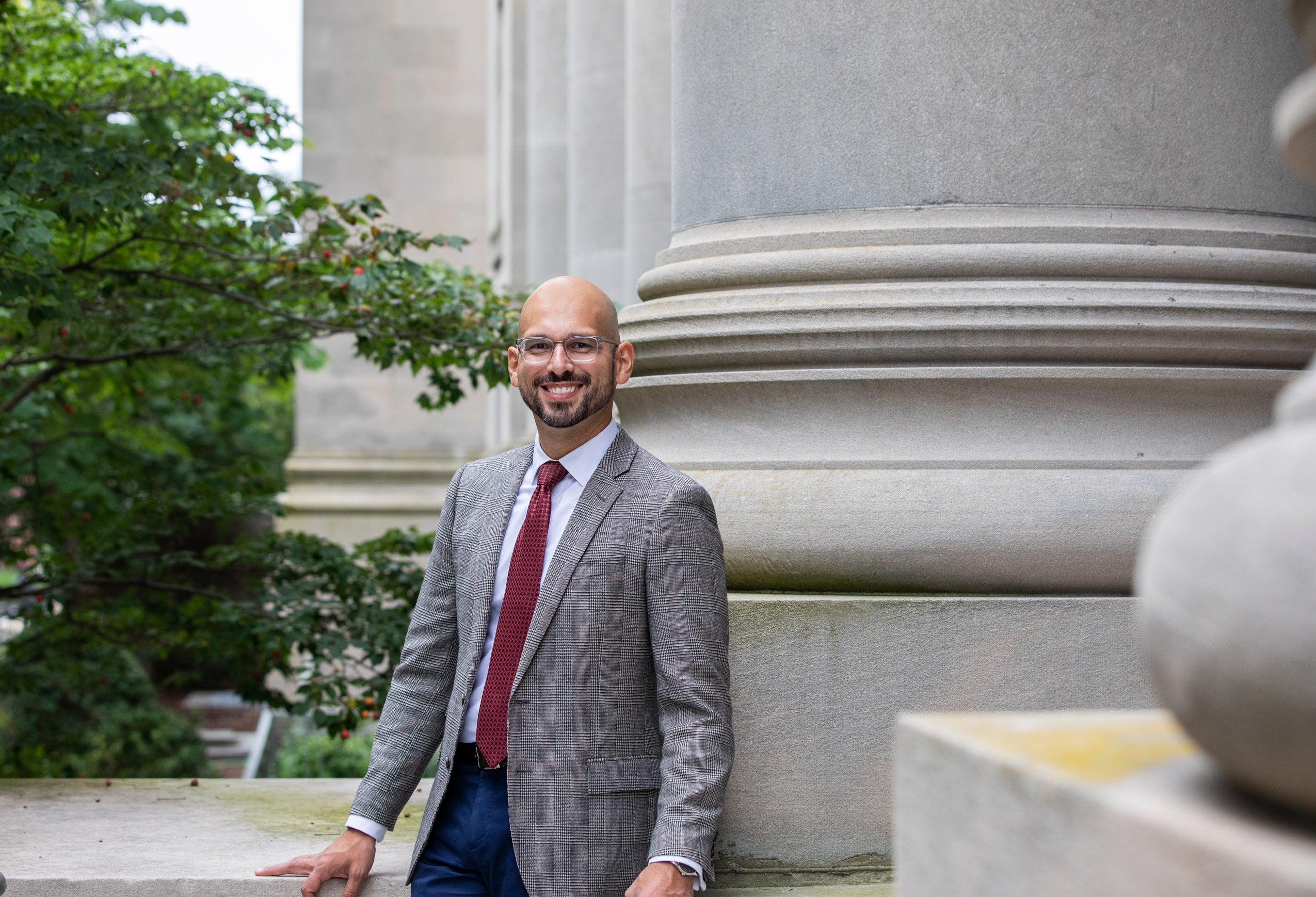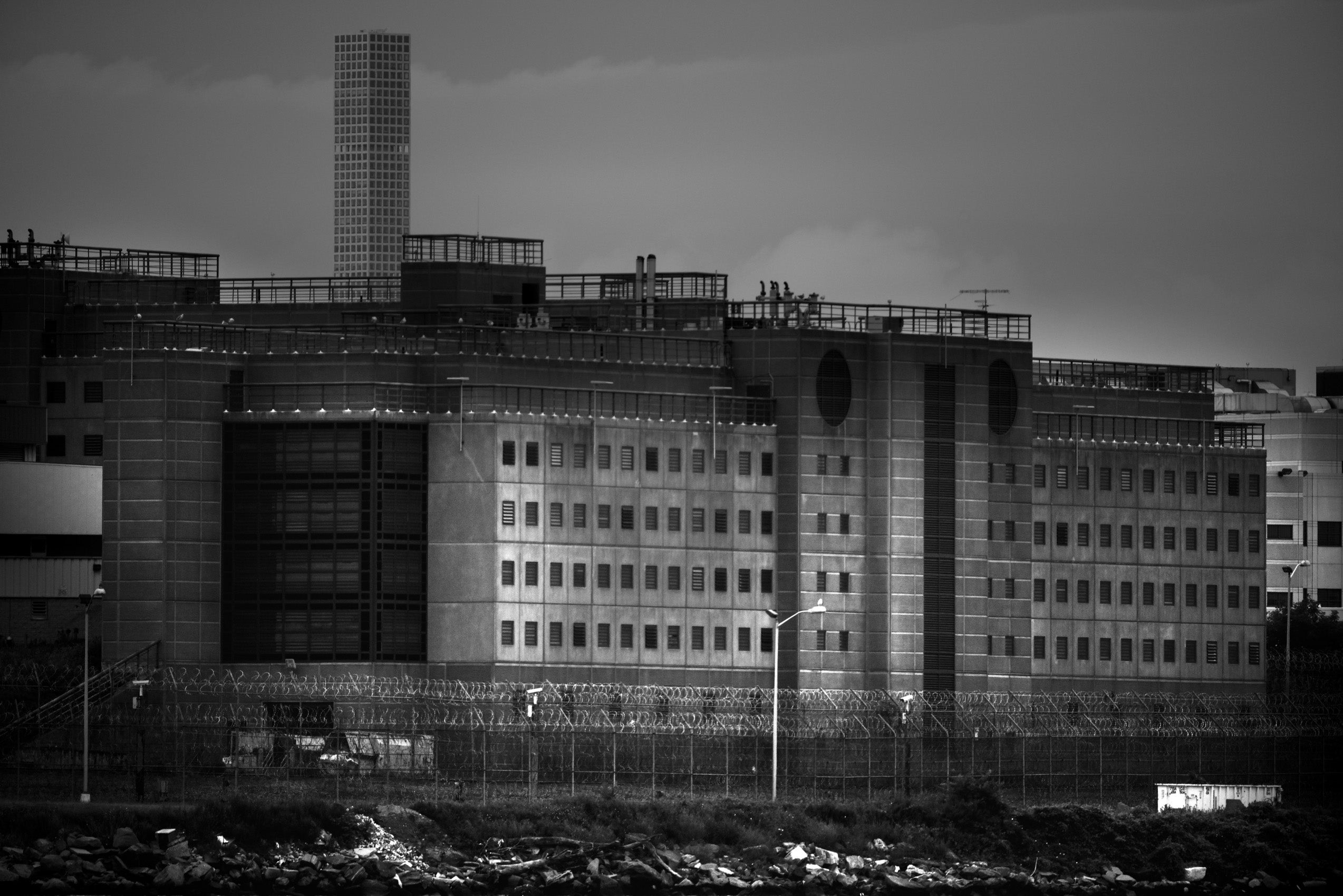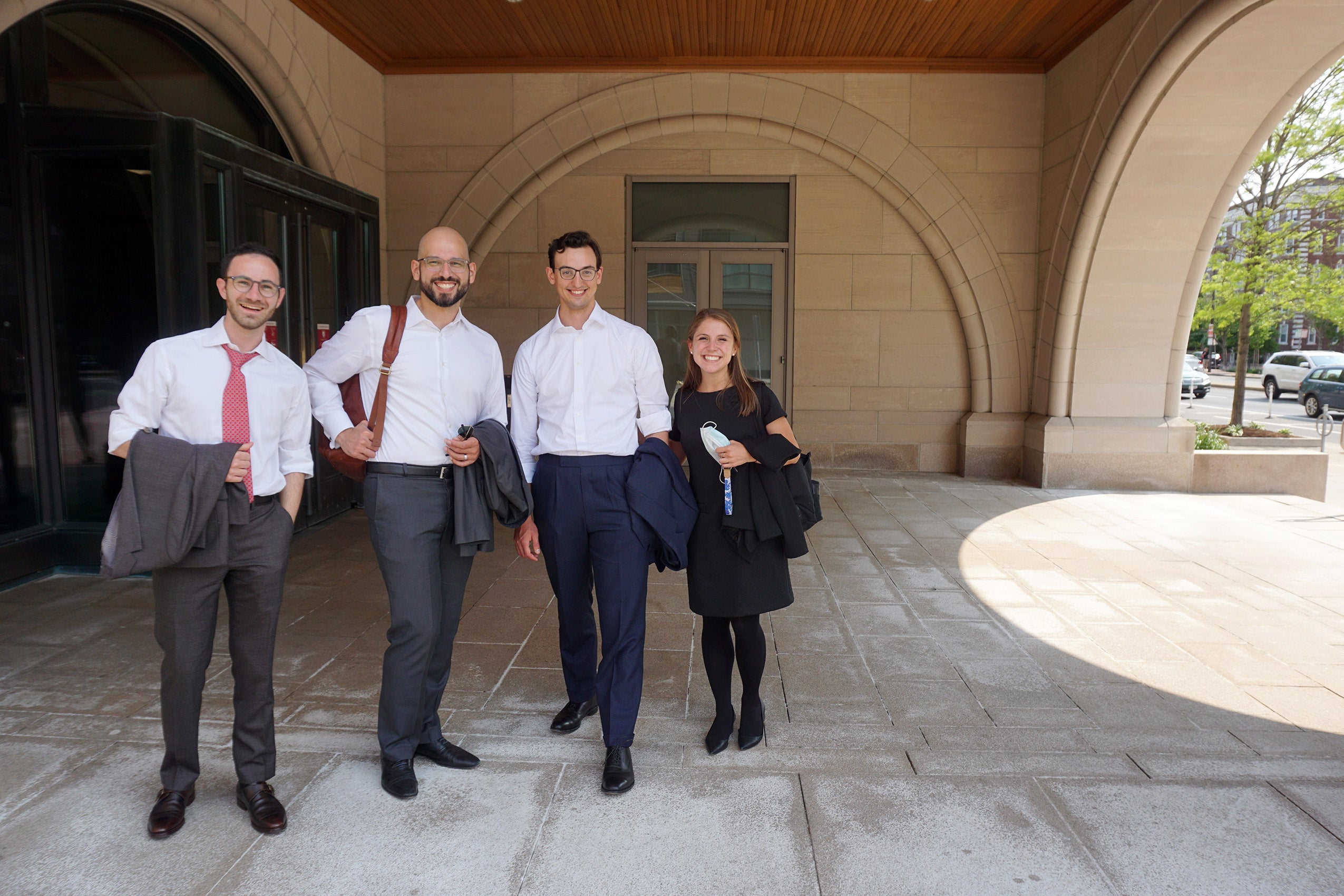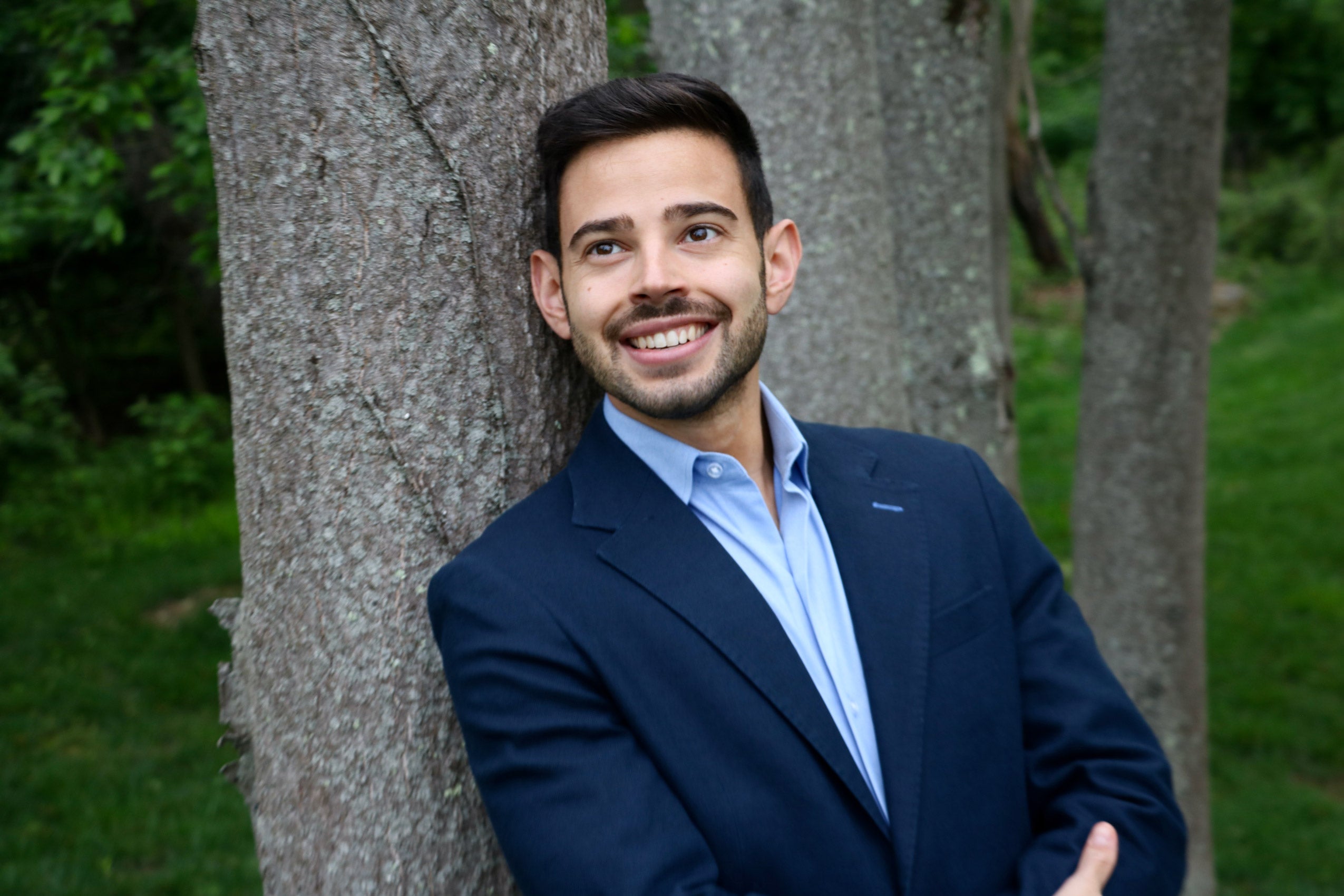People
Andrew Manuel Crespo
-
Inquest and Institute to End Mass Incarceration host Visiting Room Project symposium
October 31, 2023
At a daylong symposium cohosted by Inquest and the Institute to End Mass Incarceration, formerly incarcerated members of the Visiting Room Project sought to bridge the experiences of incarcerated people and the law students and lawyers who may one day represent them, or prosecute them.
-
Law Clerks: SCOTUS ‘tells everyone else what they can and cannot do’ … but rejects ethics pledge
May 30, 2023
Former SCOTUS law clerks Jennifer Mascott and Andrew Crespo join Meet the Press to discuss the internal dynamics and transparency of the Court.
-
Defendants, United, Could Strike the State Blindsided
April 21, 2023
An op-ed written by Andrew Manuel Crespo: Social movements are surging in ways unseen in a generation, with issues of racial justice and workers’ rights…
-
Justice Stephen Breyer returns to Harvard Law School
July 2, 2022
Retired United States Supreme Court Justice Stephen Breyer ’64 is returning to Harvard Law School, where he will teach seminars and reading groups, write, and produce scholarship.
-
The Other First What it means to nominate a veteran public defender.
February 28, 2022
To the list of obvious firsts, a Justice Ketanji Brown Jackson would add another: the first former public defender to sit on the United States Supreme Court. It’s an entry on her résumé that a few years ago might have been politically unthinkable for a nominee to the highest court but is now, thanks to years of work by the progressive legal movement and criminal-justice reformers, a boon. ... Indeed, she would join a Supreme Court that, on criminal cases, “consists largely of arguments by expert prosecutors, offered to former expert prosecutors, about cases potentially channeled to the Court by prosecutors,” as Harvard law professor Andrew Crespo put it in a 2016 Minnesota Law Review article. They may idealize the system and not understand how arbitrary or unfair it can be in practice. Thurgood Marshall, who retired over 30 years ago, was the last justice with “direct familiarity of modern-day policing and prosecution, as they are so often experienced by the stopped, the frisked, the arrested and the accused,” Crespo added.
-
Biden nominates Ketanji Brown Jackson to the Supreme Court
February 28, 2022
President Biden announced Friday the nomination of federal Judge Ketanji Brown Jackson to replace retiring Justice Stephen G. Breyer, a historic choice that fulfills the president’s pledge to nominate the first Black woman to the Supreme Court and would make Jackson, 51, just the third African American in the high court’s 233-year history. ... “If you have represented people who have gone through that system, you understand its injustices because you have seen them up close,” said [Andrew] Crespo, who was a law clerk to Breyer and Justice Elena Kagan. “Someone who comes to the bench with those perspectives will be not just a welcome addition to the bench, but someone who moves the court in a welcome direction.”
-
Latino advocacy groups, lawmakers and scholars had nothing but praise for Justice Stephen Breyer, the great-grandson of immigrants from Romania, after he announced his retirement from the Supreme Court on Thursday. “I think he was a moderate liberal who could be counted on to come out on the right way on a lot of cases that affected Latinos,” said Kevin R. Johnson, the dean of the University of California Davis School of Law, who is of Mexican American heritage. ... Andrew Crespo, professor at Harvard Law School, clerked for Breyer during the 2009-10 term. He recalled going to lunch with the justice, which required finding a spacious restaurant, “so that, when we’re sitting down and he’s telling us all these stories about the court, that we weren’t accidentally sitting next to a reporter.” “He bounced back from defeats faster than, I think, his clerks did,” Crespo told Bloomberg Law’s Cases and Controversies podcast. “He always thought maybe, maybe the best will come.”
-
CNN's Nia-Malika Henderson reacts to some conservative commentators blasting President Biden's plan to pick a Black woman for the Supreme Court [including commentary from Professor Andrew Crespo].
-
Pragmatic Justice
January 27, 2022
Supreme Court Justice Stephen Breyer ’64, who focused on the consequences of his judicial decisions, has announced that he will step down after more than a quarter century on the Court.
-
Breyer’s Clerks Recall ‘Happy Warrior’ (Podcast)
January 27, 2022
Justice Stephen Breyer is known for letting his flamboyant intellect shine on the bench. And, according to those who clerked for him, Breyer’s personality outside of the courtroom was no different. ... Breyer was described as someone with an insatiable, extroverted mind, who thrived on conversation—sometimes to a fault. Andrew Crespo, a former clerk and current Harvard Law School professor, said going to lunch with the Justice required finding a restaurant with lots of space “so that, when we’re sitting down and he’s telling us all these stories about the Court, that we weren’t accidentally sitting next to a reporter.”
-
Andrew Manuel Crespo elected to American Law Institute
January 21, 2022
HLS Professor Andrew Crespo was one of 59 members elected to the American Law Institute this year. Thirteen Harvard Law School alumni were also elected.
-
Court Reform Is Dead! Long Live Court Reform!
December 13, 2021
Joe Biden’s Commission on the Supreme Court voted on the final version of its report last week. ... Almost no one thinks that the Constitution forbids adding justices, but the draft sounded notes of grave caution all the same. “The risks of court expansion are considerable,” it emphasized. One of the commissioners, the Harvard professor Andrew Crespo, worried that arguments in favor of expanding the Court had been “teed up to be knocked down.” In effect, he remarked, the report sent “a message that the underlying problem … is neither urgent nor serious, if it even exists.” Joined by another commissioner, the NAACP lawyer Sherrilyn Ifill, Crespo’s minor rebellion was the only part of the October meeting to draw serious coverage—forcing the commission back to the drawing board. This was not the first time the commission had accidentally generated the reform energy it was supposed to contain. Back in June, the group convened publicly to discuss for the first time the merits of various reform proposals. And although the interminable meeting seemed intended to sap the will of reform advocates, the testimony that received the most attention by far was that of the Harvard professor Nikolas Bowie, which went viral on Twitter and was given pride of place in both national reporting and op-eds calling for a more democratic law. Building on earlier calls to “disempower” the Supreme Court, Bowie’s testimony helped many progressives see that the threat posed by that institution goes beyond the reactionary attitudes of individual justices, and includes the undemocratic power the justices wield, regardless of ideological leaning.
-
Supreme Court Panel Divided on Expansion Approves Report
December 8, 2021
A White House Commission studying changes to the U.S. Supreme Court voted unanimously to send its report to President Joe Biden after sidestepping the most controversial proposals to expand the court’s membership or limit the justices’ terms. Members, who voted 34-0 Tuesday, emphasized that their approval of the final report doesn’t signal support for all the proposals examined by the panel. ... Some may be disappointed that the report doesn’t make specific recommendations, said former U.S. District Court Judge Nancy Gertner, who said she supports changes to the court. “But that was not our charge,” Gertner said. Instead, “the tasks set before us was to capture that deep, live, and consequential debate, fully and fairly, without short changing either side,” said Harvard Law School Professor Andrew Manuel Crespo. ... The commission concluded that the least controversial changes, like term limits, were the hardest to enact, said Harvard Law School Professor Larry Tribe. And the most controversial—expanding the number of justices—the easiest to do, he added.
-
“Decarcerating” America
October 15, 2021
As she assumes her new role as organizing fellow for Harvard Law School’s new Institute to End Mass Incarceration (IEMI), community organizer Brittany White finds herself thinking of Bianca. ... The institute proposes a new role for lawyers in the push to “decarcerate” America. “Lawyers think that power comes from law and permits, that the way liberal lawyers can make a difference is by going in and bringing power to clients. That’s not the way we think about it,” says faculty director and Wasserstein public interest professor of law Andrew Manuel Crespo. “We take our inspiration and our cues from movement work,” such as the civil-rights movement or labor organizing, because such things “have had the biggest impact on changing deep structural injustices in America.” The Institute, Crespo says, proposes that “power comes from the ground up,” and lawyers, in particular public defenders, should use their legal expertise to “help communities activate their power.” They want to teach the next generation of lawyers to be active partners with community organizers like White in the fight to end mass incarceration.
-
Andrew Manuel Crespo ’08 and Premal Dharia, leaders of the ambitious new Institute to End Mass Incarceration, take aim at ‘one of the defining civil rights issues of our time.’
-
Justice for all
June 9, 2021
A Harvard Law School clinic works to overturn a federal policy in D.C. that advocates say leads to racial injustice and contributes to mass incarceration.
-
87 Ex-Prosecutors Push DOJ to Stop Charging DC Gun Cases Federally, Leading to Longer Sentences
May 24, 2021
Eighty-seven former federal prosecutors are pushing the Biden Justice Department to end a Trump-era “felon-in-possession” initiative that lets prosecutors shift gun cases out of D.C.’s Superior Court and into federal District Court, where sentences can be twice as long. In a letter to Attorney General Merrick Garland and Acting U.S. Attorney Channing D. Phillips, the lawyers wrote, “Excessive sentences exacerbate the underlying drivers of violence, producing shame, isolation, stunted economic opportunity, and exposure to further violence.” They added that the policy also increases racial inequity... “The civil rights groups are against it, the locally elected officials are against it, and scores of former federal prosecutors are against it,” wrote Harvard Law Professor Andrew Crespo, who is director of the Institute to End Mass Incarceration. “The Biden administration could easily and immediately end it. Instead, they came to court today to defend it.”
-
If all the world’s a stage, Frankie Troncoso ’21 has an outsized role to play.

